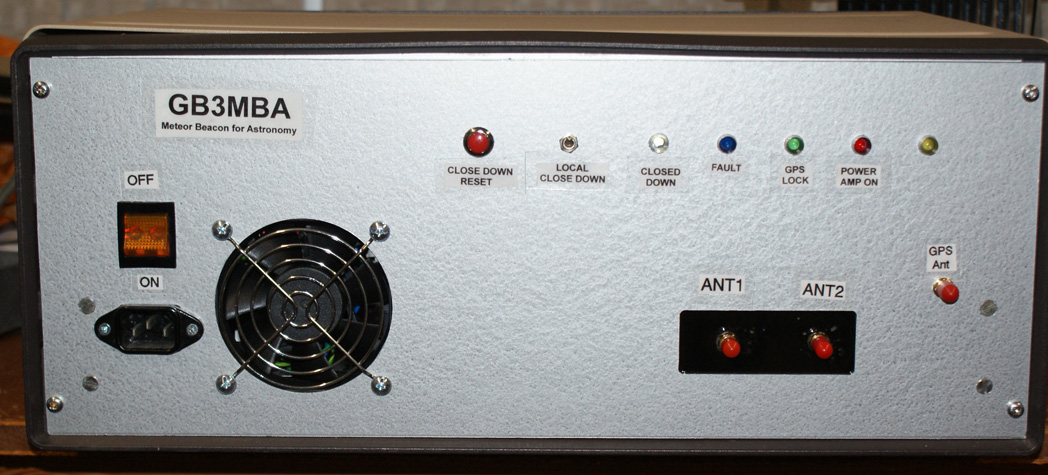GB3MBA 6M Meteor Beacon
The beacon runs about 80W CW on 50.408MHz with A1A identification every 10 minutes. The unmodulated carrier and GPS frequency control make possible precision Doppler measurements of echoes from meteor trails. With this power level, meteor echoes are detectable using simple equipment such as the Fun Cube Dongle and a wire dipole antenna. Right Hand circular polarisation is used to help overcome the polarised nature of meteor “head echoes”. The beacon has been licenced by OFCOM and went live on the week end of the 14th and 15th May. The Sherwood observatory is an ideal location as it is fairly central to the UK. MSAS, with local government backing, are in the process of developing their site into a science centre.
The second phase of the project which is now underway is to design web based Software Defined receivers that can be deployed to radio quiet locations to stream to the net I/Q data along with precision timing. Individuals or establishments wishing to join the project will be able to provide their own receivers or take advantage of the ones being designed for the project.
The UK Radio Astronomy Association UKRAA do now have a Moxon Antenna in stock and it can can be found here or you can build your own following these Instructions
Where possible, receivers will form a network and stream their data to a central server which will be accessible to project participants. In addition to counting meteor events and analysing the echoes, an ambition is to use the I/Q and timing data to measure velocities, as observed from different locations at a particular instant while the meteor is burning up. With a sufficient number of observations this has the potential for the meteor's location, velocity trajectory and radiant to be calculated in near real time.
The hardware, and development of the beacon have been funded by the Radio Society of Great Britain (RSGB) Legacy Fund. Various ways of financing on-going costs are being considered by the Radio Astronomy community. The legacy fund has also agreed to fund the receiver development and building of the first few prototypes. The Radio Communications Foundation have indicated that they could provide support at graduate level for radio related projects using the beacon and receiver network. This is likely to take the form of scholarships awarded in accordance with their terms of reference
Vertical 1m crossed Moxon Antenna - 50.408 Mhz

